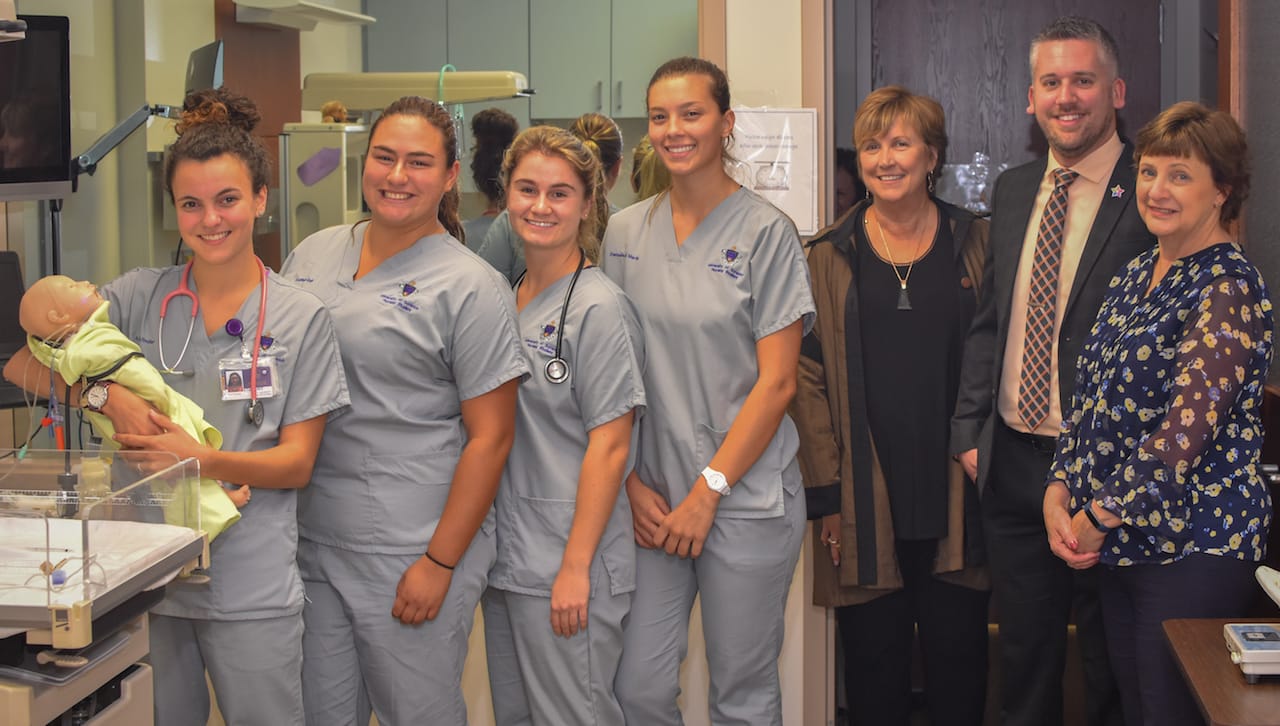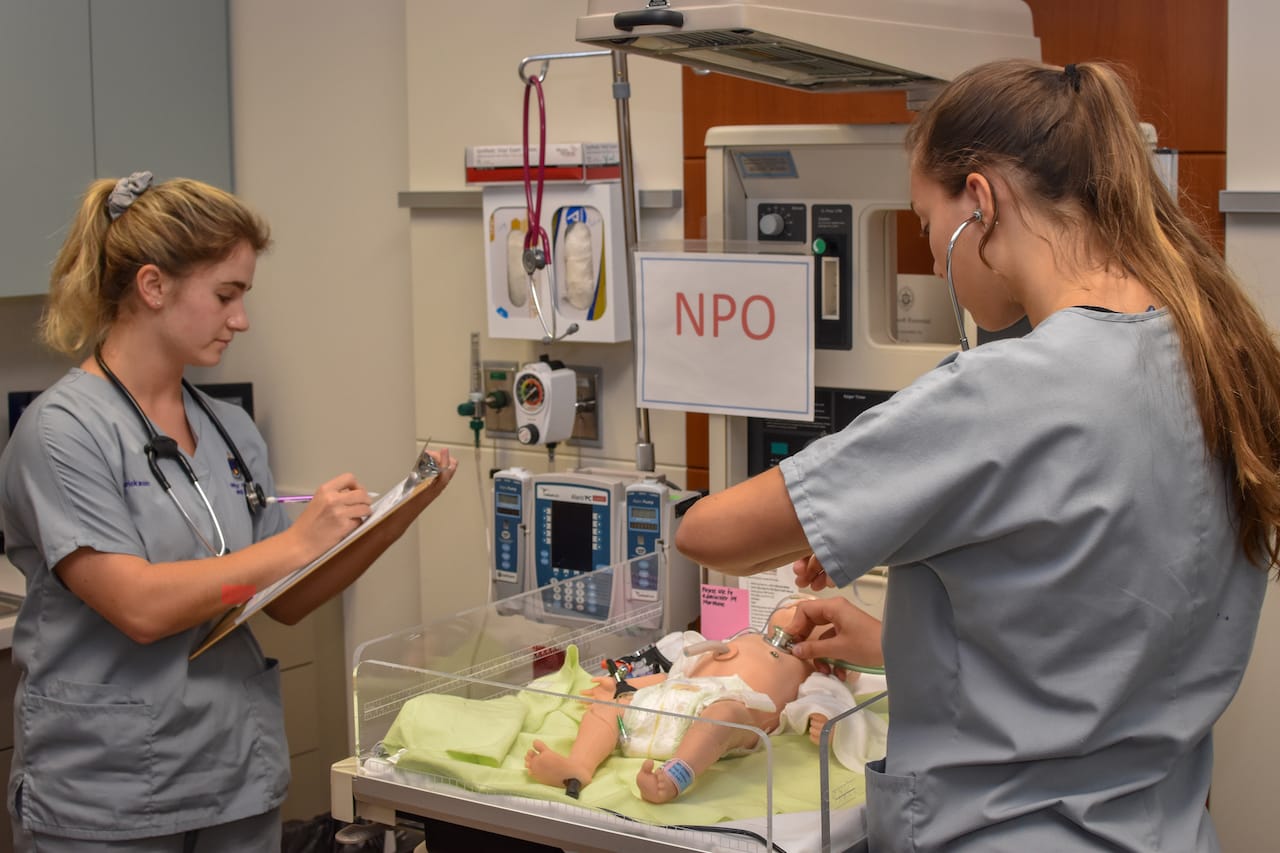New Lifelike Simulators Used by Student Nurses

The Moses Taylor Foundation recently awarded a $88,000 grant to The University of Scranton’s Nursing Department for the purchase new simulator equipment for its laboratory.
Through the support, the University acquired Newborn Tory S2210, an advanced newborn patient simulator; Pediatric Hal S3005, a five-year-old pediatric simulator; and a Simcart Rx, a simulation medication dispensing system. “Tory” looks and feels like a real infant, with supple skin, lifelike vitals and realistic sounds. “Hal” can track students’ actions in response to life-threatening situations and even speaks, thanks to an extensive library of voice responses.

These simulators allow nursing students to practice emergency protocol safely and in a controlled environment. Additionally, the new equipment permits students to make life-or-death decisions that they may be required to make in the field without the risk to a real patient in clinical rotation, resulting in more confident, successful professionals.
The University offers bachelor’s and master’s degrees in nursing, as well as a doctor of nursing practice. The University’s nursing programs are accredited by the Commission on Collegiate Nursing Education.
The mission of Moses Taylor Foundation is to improve the health of the people in Northeastern Pennsylvania.










